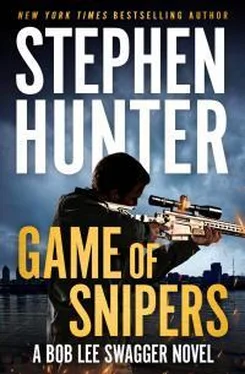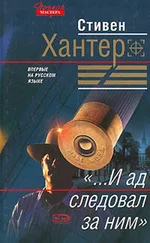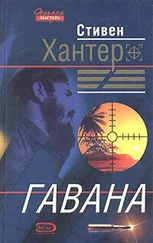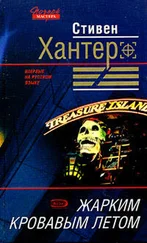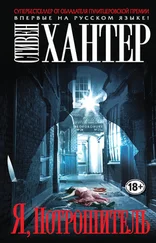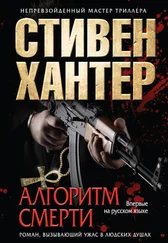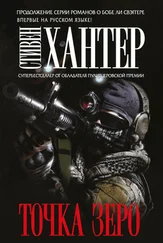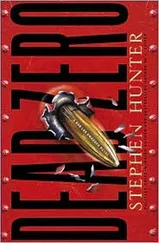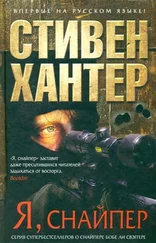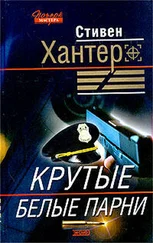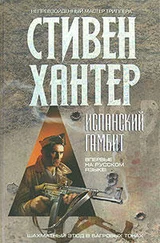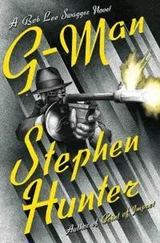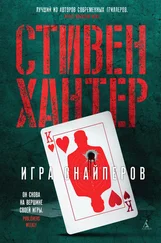Стивен Хантер - Game of Snipers
Здесь есть возможность читать онлайн «Стивен Хантер - Game of Snipers» весь текст электронной книги совершенно бесплатно (целиком полную версию без сокращений). В некоторых случаях можно слушать аудио, скачать через торрент в формате fb2 и присутствует краткое содержание. Жанр: Триллер, на английском языке. Описание произведения, (предисловие) а так же отзывы посетителей доступны на портале библиотеки ЛибКат.
- Название:Game of Snipers
- Автор:
- Жанр:
- Год:неизвестен
- ISBN:нет данных
- Рейтинг книги:3 / 5. Голосов: 2
-
Избранное:Добавить в избранное
- Отзывы:
-
Ваша оценка:
- 60
- 1
- 2
- 3
- 4
- 5
Game of Snipers: краткое содержание, описание и аннотация
Предлагаем к чтению аннотацию, описание, краткое содержание или предисловие (зависит от того, что написал сам автор книги «Game of Snipers»). Если вы не нашли необходимую информацию о книге — напишите в комментариях, мы постараемся отыскать её.
Game of Snipers — читать онлайн бесплатно полную книгу (весь текст) целиком
Ниже представлен текст книги, разбитый по страницам. Система сохранения места последней прочитанной страницы, позволяет с удобством читать онлайн бесплатно книгу «Game of Snipers», без необходимости каждый раз заново искать на чём Вы остановились. Поставьте закладку, и сможете в любой момент перейти на страницу, на которой закончили чтение.
Интервал:
Закладка:
The result was ten more satanic blowtorches so bright, it hurt to see. The world became flame. The commando grabbed Bob to pull him out, for clearly the room would be completely lost to fire in seconds, the house in a few more, but Bob pulled away, screaming in English, “I have to check it out.”
Few men run into fire; he was one. Though he could feel his skin blistering, he shoved himself forward three or four feet, then five or six, yanked his goggles off for better vision and saw what he could see of the components above the bench before they were consumed by flame. He saw the green boxes of Sierra bullets, the yellow of Berger, the yellow-and-black of Swift, and others. He wasn’t close enough to grab one but had the impression, not clearly confirmed, that the calibration on all the boxes was .338s.
Two or three subsequent cans of powder went, and their Devil’s breath spewed plumes in on him. He saw his sleeve was on fire, twisted, tried to find his way out in the flames, which were now general, and suddenly remembered the laptop. He twisted back against the wave of heat, and though each particle of skin was being clawed with hurt, he managed to reach out, snag the laptop with one grasp, and pull away. He stumbled a step or two, unfortunately gasped and took in some superheated atmosphere and lost another second to a racking cough. At that point, on one knee and in recovery from his hacking spasm, his eyes caught on a large gun case, steel, expensive, a wealthy sportsman’s piece of equipment, leaning against the far wall, buckling as the heat crunched it. Two of three initials engraved on the case in exquisite calligraphy six inches tall were briefly visible, and again he thought he registered them as A and W . Then they were gone.
Fire propelled him to the door, and though it seemed to take hours, he reached it and spilled out. The room before him was empty, though beginning to ignite here and there too. He passed the entryway and felt the coolness of uncontaminated oxygen. Two men grabbed him and pulled him back to where the commandos had gathered and the fire’s heat was not lethal.
“We thought we’d lost you, brother!” yelled Gadi.
“Damned near,” said Bob, sprawling in an ecstasy of oxygen debt, sucking desperately for some air to inflate his life force. Someone took the laptop, someone else peeled the Uzi off his shoulder, and the Kevlar vest was sprung next. Cool water from a canteen gurgled in his throat, and he gulped it down. He was done for the night. Maybe for the year.
“Medic!” yelled Gadi. “Get some salve on this arm.”
He was quickly tended to. Gadi gave the signal, and the party fell back to the landing zone and popped red flares, even as the three birds broke orbit and swooped down. Swagger still had fire flaring in his mind, his left arm and left shoulder hurt badly, his night vision shot — perhaps forever — by his encounter with the big flame, and his mind wasn’t ticking properly. He turned back, saw the house now all gone to flame. Nothing left.
The next thing he knew, men were pulling him aboard a chopper and flattening him out on the deck. A quick radio count was made and confirmed that all who’d landed were back aboard, and the birds roared airborne, 13 homeward-bound.
11
Southern Syria, in the wheat
Juba watched. Three Black Hawks, expertly flown, as one expected of the Israelis. They did nothing poorly, they never quit or surrendered, their timing was exquisite. He hated these guys, but, damn them to the deepest chamber of Hell, they were good.
The helicopters landed, their cargo of commandos disembarked, and the birds were airborne again in seconds and climbed and vanished to a holding pattern above the fight. The operators moved fast; the question was, how fast would his people react? He knew that battles turned in the split second between action and reaction. His fellows were the best, ex–Republican Guard Special Forces, and they didn’t let him down.
The volume of fire rose quickly, and the night was speared by the blasts of grenades. From three hundred yards out, he could see the automatics opening up. His guards had not wasted time wondering what was happening but got straight to the guns. The Israelis would win, with surprise and firepower on their side, but how much data would they collect in the aftermath of the raid? The guards knew their duty: to serve Allah by holding off the assault long enough for someone to detonate the smokeless powder and leave no trace behind.
It was close. A detonation came from within far too early, meaning that the commandos had gotten close enough to use grenades to room-clear and advance. Indeed, with his superb vision, he saw the figures of commandos scurry low through the doors, and now the gunfire came from within the dwelling as its assaulters closed in and flooded it.
Adid, he thought. Adid, you swore to me you’d succeed. I trusted you. But maybe Adid had taken a bullet in the head on the first exchange, and all his zeal and drive and hatred of infidels hadn’t been enough to drive him to the final act.
Adid, I pray to Allah that I have not sacrificed you for nothing. Be a martyr in the battle, you who have given so much over the years, you who—
The powder went. Adid! Adid the Martyr had somehow, under the very eyes of the Israeli commandos, gotten it done. It was a bolt of incandescence, Allah’s lightning, that blew out the shopwindow, and it was followed a second later by another bolt — larger, faster, hungrier — that seemed to rip through the house, and everywhere it struck, it ignited, and in another few seconds the whole dwelling was in flames.
Now, he thought, I must run. Suppose they hunt me with heat-seeking lenses and machine guns from the air. It would be so like them, for the Jew loved his gizmos, much more than a blade for stabbing or a scarf for strangling. It was evidence of their depravity.
He turned and raced through the wheat.
12
The black cube
A few days later
He thought the wheelchair a bit much. But the doctors insisted, and you do not argue with Israeli doctors in an Israeli military hospital. Nurse Susan rolled him out of the ambulance and through security, where, even still, he was scanned by electronic wand. These boys didn’t take chances.
He’d come to cleaned and bathed, but he was in pain. His burned arm felt like it was suspended in oil, which was simply antibiotic cream meant to lessen the chance of infection. The burns were second-degree and would heal, no skin grafts needed. He felt well enough on the second day to talk to his wife and assure her it was no worse than some kind of Fourth of July accident or maybe from staying too long at the beach — that sort of thing. Her unexpressive voice told him she didn’t buy it, but there was no way to fix that.
And now this. Dressed in surgical scrubs, shaved, smoothed, hair cut, he found himself being rolled into the same conference room as before, once again to a rabbinical audience of men who had done much and who spoke little. As before, it seemed Gershon Gold was in charge. The Director would sit, imperturbably unimpressed, in his central seat, and the comedy material would be supplied by the man called Cohen, who announced, “Freshly returned from his recon in Hell, the possibly insane Gunnery Sergeant Swagger, USMC. How did you find the weather down there, Sergeant Swagger?”
“It ain’t the humidity,” said Bob. “It’s the heat.”
“Excellent,” said Cohen. “If he can banter at a time like this, he’s ready for the rabbinate.”
“All right,” said Gold, “no need to go over tactical details, as Lieutenant Commander Motter and the others have been debriefed extensively, and all accounts are in accord. Time now to hear Sergeant Swagger’s read on the situation and his action recommendations. I suppose there’s really only one question, in the end. Our soldiers — I include you, sir — killed eleven men that night. We were able to get right thumbprints off of ten of them. No Juba. So, have you reason to believe he was the eleventh man — that is, the chap who melted himself before your eyes? He was obviously impossible to fingerprint.”
Читать дальшеИнтервал:
Закладка:
Похожие книги на «Game of Snipers»
Представляем Вашему вниманию похожие книги на «Game of Snipers» списком для выбора. Мы отобрали схожую по названию и смыслу литературу в надежде предоставить читателям больше вариантов отыскать новые, интересные, ещё непрочитанные произведения.
Обсуждение, отзывы о книге «Game of Snipers» и просто собственные мнения читателей. Оставьте ваши комментарии, напишите, что Вы думаете о произведении, его смысле или главных героях. Укажите что конкретно понравилось, а что нет, и почему Вы так считаете.
